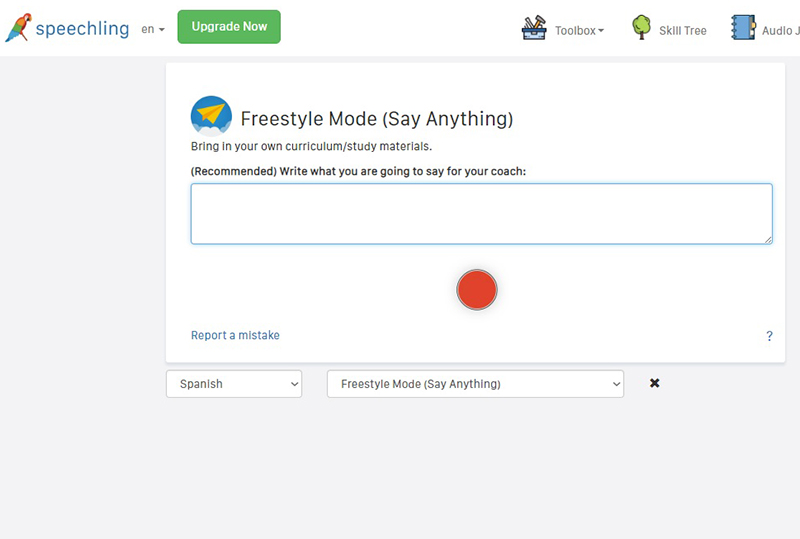18 Funniest Spanish Idioms and Expressions to Speak Fluently

You are in bad milk? She got onto the chicken? Sometimes when listening to Spanish people speak you may be confused by idioms and expressions that sound funny when literally translated. It's actually an important (and entertaining) part of language learning that will help you speak fluently. So let's have some fun!
What is an Idiom?
Usually, the literal meaning of a sentence will get across the point of the speaker, but sometimes a figurative interpretation is needed. The dictionary definition of the independent words of a sentence is changed within the context of metaphor, idiom, and expression.
Every language is full of idioms, which are specific words, or whole sentences, that are commonly spoken to mean something beyond their original dictionary definition. There are many funny Spanish idioms and expressions, which when used in conversation, will make you sound even more fluent in Spanish.
18 Funniest Spanish Idioms and Expressions

1. Cuatro gatos
Literal Meaning: four cats.
Figurative Meaning: nobody, hardly anyone.
Example with Translation: "Éramos cuatro gatos en la fiesta, no te perdiste nada." - "There was hardly anyone at the party, you didn't miss a thing."
2. No hay tu tía
Literal Meaning: there isn't your aunt.
Figurative Meaning: no way, not a chance, there is no possibility.
Example with Translation: "¡Mamá, quiero ir al concierto de Justin Bieber!","No hay tu tía, tienes deberes." - "Mom, I want to go to the Justin Bieber concert!","No way, you have homework."
3. Estar de mala leche
Literal Meaning: to be of bad milk.
Figurative Meaning: to be in a bad mood.
Example with Translation: "Te estás portando como un bebe. ¿Por qué estás de mala leche?" - "You are behaving so badly. Why are you in such a bad mood?"

4. No estar católico
Literal Meaning: to not be catholic
Figurative Meaning: to not feel well, to feel unhealthy
Example with Translation: "Venga, vuelvo a mi casa, es que no estoy muy católico." - "Alright, I'm going home, it's just I'm not feeling that well."
5. Sacar las castañas del fuego
Literal Meaning: to take the chestnuts out of the fire.
Figurative Meaning: to help/save someone from trouble.
Example with Translation: "Contrólate en Italia, no podré sacarte las castañas del fuego allí." - "Control yourself in Italy, I won't be able to get you out of trouble over there."
6. Montar un pollo
Literal Meaning: to get onto, or mount, a chicken.
Figurative Meaning: to cause a scene in public, become enraged.
Example with Translation: "Cuando le dije que había olvidado mi cartera montó un pollo en el restaurante." - "When I told her I had forgotten my wallet, she caused a scene in the restaurant."

7. Me piro vampiro
Literal Meaning: I'm out (leaving) vampire.
Figurative Meaning: the use of the word vampire here is fun because it rhymes, but it only refers to your friend (not to be used in other contexts). Me piro is common, but a little slang, to mean leave quickly, perhaps to "split".
Example with Translation: "Ya son las once, me piro vampiro." - "It's already 11:00pm, I'm gonna split dude."
8. Matar la gallina de los huevos de oro
Literal Meaning: to kill the hen that lays the golden egg.
Figurative Meaning: to self-sabotage, to waste a good opportunity.
Example with Translation: "La entrevista fue fatal. Estoy seguro de que maté la gallina de los huevos de oro." - "The interview went horribly. I'm sure I've wasted such a good opportunity."
9. Estar como un tren
Literal Meaning: to be like a train.
Figurative Meaning: to look gorgeous, stunning.
Example with Translation: "¿Has visto a María? Está como un tren." - "Have you seen Maria? She's looking hot."

10. Me importa un rábano
Literal Meaning: it matters as much as a radish to me.
Figurative Meaning: I couldn't care less.
Example with Translation: "¡Me importa un rábano lo que quieres!" - "I couldn't care less about what you want!"
11. Ponerse ciego
Literal Meaning: to make oneself blind.
Figurative Meaning: to drink or eat a lot.
Example with Translation: "Es obvio porque te duele la barriga, te pusiste ciego de chorizo." - "It's obvious why your stomach hurts, you stuffed yourself with chorizo."
12. Hacer buenas migas
Literal Meaning: to make good crumbs.
Figurative Meaning: to get along with well.
Example with Translation: "Quedamos otra vez pronto, nuestras hijas hacen buenas migas." - "Let's hang out soon, our daughters get along so well."

13. Por si las moscas
Literal Meaning: if the flies.
Figurative Meaning: just in case.
Example with Translation: "No llueve, pero llévate un paraguas por si las moscas." - "It's not raining, but bring an umbrella just in case."
14. ¡Ostras!
Literal Meaning: oysters.
Figurative Meaning: oh my goodness!
Example with Translation: "¡Ostras! No sabía que juegas tan bien la guitarra." - "Oh my goodness! I didn't know you played the guitar so well."
15. No tener pelos en la lengua
Literal Meaning: to not have hairs on one's tongue.
Figurative Meaning: to be blunt/honest.
Example with Translation: "Lo siento si te ofendí, es que no tengo pelos en la lengua." - "Sorry if I offended you, it's just that I am quite a blunt person."

16. Estar pez
Literal Meaning: to be a fish
Figurative Meaning: to not know a thing
Example with Translation: "No importa cuanto estudie, estoy pez en matemática." - "It doesn't matter how much I study, I don't know a thing about math."
17. Estar frito
Literal Meaning: to be fried.
Figurative Meaning: to be completely tired.
Example with Translation: "Fue un día larguísimo, estoy frito." - "It was such a long day, I'm beat."
18. Cuando nieva en Sevilla
Literal Meaning: when it snows in Sevilla.
Figurative Meaning: probably never.
Example with Translation: "Tendré una novia cuando nieva en Sevilla" - "I will probably never have a girlfriend."

How to Use Spanish Idioms and Expressions
All of these Spanish idioms and expressions are commonly used. Some are more common than others, but if used correctly with the right crowd, you can really impress and make funny jokes. The first key is to pronounce them perfectly. You can enter each phrase in Speechling's "Freestyle Mode" and get feedback from a native speaker on how you pronounce!
Another helpful tip when using Spanish idioms and expressions is to always make sure that they are polite enough for the situation, or to not use them at all. None of the Spanish idioms and expressions in this article are offensive, but some could sound rude in a formal setting. Start using them in informal settings to practice and soon you will speak fluently, knowing the exact right time to say a funny Spanish idiom.
